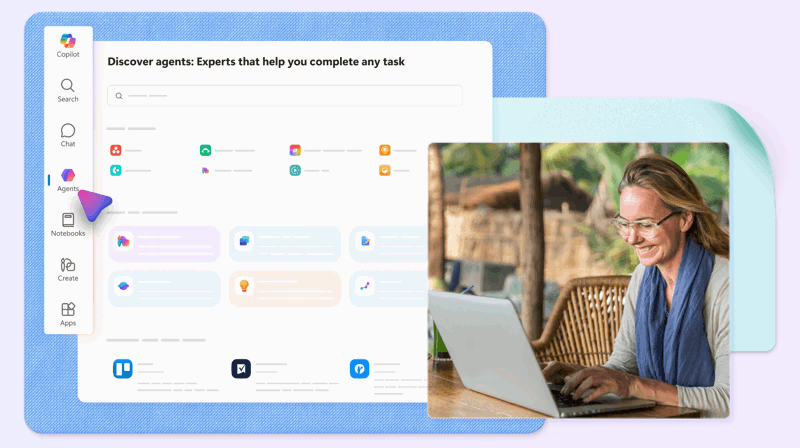Who Should Use Power Platform — Is It Right for You?

Who Should Use Microsoft Power Platform? A Complete Guide to Target Users and Industries
Microsoft Power Platform has revolutionised how organisations approach business solutions, but who exactly should be using it? This comprehensive guide explores the ideal users, business roles, and industries that benefit most from Power Platform's low-code capabilities.
Who Are the Primary Power Platform Users?
Business Users and Citizen Developers
Business analysts, department managers, and subject matter experts represent the largest user base for Power Platform. These professionals understand business processes intimately but may lack traditional programming skills. Ideal Characteristics:
- Deep understanding of business processes and pain points
- Basic technical aptitude and willingness to learn
- Authority to make decisions about departmental workflows
- Access to relevant data sources and stakeholders
Common Roles:
- Operations managers
- HR coordinators
- Marketing specialists
- Finance analysts
- Project managers
- Administrative assistants
IT Professionals and Developers
Professional developers and IT teams use Power Platform to accelerate development cycles and focus on complex integrations while empowering business users to create their own solutions.
How IT Benefits:
- Reduced backlog of simple application requests
- Faster prototype development and proof-of-concepts
- Enhanced integration capabilities with existing systems
- Governance and security oversight of citizen-developed solutions
Executive Leadership
C-suite executives and senior managers leverage Power Platform for strategic decision-making through advanced analytics and organisational oversight.
Executive Use Cases:
- Real-time business intelligence dashboards
- Performance monitoring and KPI tracking
- Strategic planning and forecasting tools
- Board reporting and presentation materials
Industries That Benefit Most from Power Platform
Healthcare and Life Sciences
Healthcare organisations use Power Platform to improve patient care, streamline operations, and ensure regulatory compliance.
Common Applications:
- Patient intake and scheduling systems
- Clinical workflow automation
- Compliance reporting and auditing
- Medical equipment tracking
- Telehealth appointment management
Financial Services
Banks, insurance companies, and financial institutions leverage Power Platform for customer service, risk management, and regulatory reporting.
Typical Use Cases:
- Loan application processing
- Customer onboarding workflows
- Fraud detection and reporting
- Compliance monitoring
- Investment portfolio analysis
Manufacturing
Manufacturing companies use Power Platform to optimise production, manage quality control, and improve supply chain visibility.
Manufacturing Applications:
- Production scheduling and tracking
- Quality assurance checklists
- Equipment maintenance workflows
- Inventory management systems
- Supplier communication portals
Education
Educational institutions implement Power Platform for student services, administrative processes, and learning management.
Educational Use Cases:
- Student information systems
- Course registration and scheduling
- Faculty performance tracking
- Campus facility management
- Parent-teacher communication portals
Retail and E-commerce
Retail organisations use Power Platform for inventory management, customer engagement, and sales optimisation.
Retail Applications:
- Inventory tracking and replenishment
- Customer feedback collection
- Employee scheduling systems
- Sales performance dashboards
- Promotion and pricing management
Business Roles That Should Consider Power Platform
Department Managers
Why It's Perfect: Department managers understand their team's daily challenges and have authority to implement solutions.
Best Applications:
- Team performance dashboards
- Resource allocation tools
- Process improvement initiatives
- Budget tracking and reporting
Process Improvement Specialists
Why It's Ideal: These professionals focus on identifying and eliminating inefficiencies in business processes.
Key Benefits:
- Rapid prototyping of process improvements
- Data collection and analysis capabilities
- Workflow automation opportunities
- Change management support tools
Data Analysts
Why It Works: Data analysts need flexible tools to create reports, dashboards, and analytical solutions quickly.
Primary Uses:
- Custom reporting solutions
- Interactive data visualisations
- Automated data collection processes
- Self-service analytics for business users
Customer Service Teams
Why It's Valuable: Customer service teams need tools to track issues, automate responses, and improve customer satisfaction.
Applications:
- Ticket tracking and resolution systems
- Customer feedback collection
- Knowledge base management
- Service level agreement monitoring
Signs Your Organisation Is Ready for Power Platform
Organisational Readiness Indicators
Strong Candidates Have:
- Multiple manual processes that could be automated
- Data scattered across various systems and spreadsheets
- Frequent requests for custom applications or reports
- Budget constraints that limit traditional software development
- A culture that embraces change and innovation
Technical Prerequisites
Infrastructure Requirements:
- Microsoft 365 or Azure Active Directory
- Reliable internet connectivity
- Basic data governance policies
- Security and compliance requirements understanding
Cultural Factors
Success Indicators:
- Leadership support for digital transformation
- Willingness to invest in employee training
- Openness to new ways of working
- Collaborative culture between IT and business teams
Who Should Avoid Power Platform (For Now)
Organisations Not Ready
Red Flags:
- Extremely complex regulatory requirements that require custom development
- Limited technical resources and no appetite for learning
Specific Scenarios Where Alternatives Might Be Better
Consider Other Options When:
- Building consumer-facing applications with millions of users
- Needing highly specialised industry-specific functionality
Getting Started: First Steps for Different User Types
For Business Users
- Start Small: Begin with simple reporting or data collection applications
- Learn the Basics: Complete Microsoft Learn modules for Power Platform
- Identify Quick Wins: Focus on processes that are manual and repetitive
- Seek Support: Connect with IT teams and establish governance guidelines
For IT Professionals
- Establish Governance: Create policies for citizen development
- Set Up Environment: Configure security, compliance, and data loss prevention
- Provide Training: Support business users with resources and guidance
- Plan Integration: Identify key systems that need to connect with Power Platform
For Organisations
- Assess Readiness: Evaluate current processes and technical infrastructure
- Define Strategy: Align Power Platform adoption with business objectives
- Start Pilot Program: Begin with a small, controlled implementation
- Measure Success: Establish KPIs and track return on investment
Making the Decision: Is Power Platform Right for You?
Microsoft Power Platform is ideal for organisations and individuals who need to solve business problems quickly without extensive technical resources. It's particularly valuable for those who understand their business processes well and want the flexibility to create custom solutions.
The platform works best when there's organisational support for digital transformation, willingness to learn new tools, and clear business problems that need solving. If you're dealing with manual processes, disconnected data, or frequent requests for custom solutions, Power Platform could be the answer you're looking for.
Consider starting with a small pilot project to test the waters and build confidence before expanding to larger, more complex implementations.






